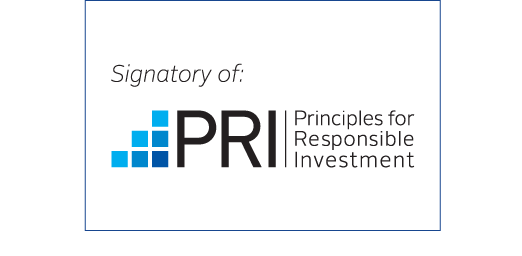ESG at VanEck
Investing Today for a Brighter Future.
ESG investing is an approach to investing that drives positive environmental, social and governance (ESG) outcomes alongside financial results, aligning investment opportunities with investors’ values.
Our Responsible Investment Policy
What is ESG Investing?
ESG investing incorporates environmental, social and governance factors and ethical considerations when making investment decisions.
Environmental
Environmental factors range from energy use and impact on climate change, greenhouse gas emissions, waste, pollution, natural resource conservation to animal treatment.
Social
Social factors range from a company’s relationships with its stakeholders and includes working conditions, impact on local communities, health and safety and employee relations and diversity.
Governance
Governance includes the proper use of accurate and transparent accounting methods, fair voting, avoiding conflicts of interest and not engaging in illegal behavior.
Our Commitment to Responsible Investment
VanEck is a signatory to the Principles for Responsible Investment (PRI), showing our commitment to responsible investment.
Governance—“active engagement” in particular—has always been a major consideration in our research processes for active funds and our efforts to fine-tune the ESG questions to ask in each industry are ongoing. We believe that an important part of our responsibility to clients goes beyond encouraging change that can enhance, protect and provide opportunities for shareholders to meet their investment objectives. It also entails seeking to mitigate associated risks, including those related to ESG.

Active Strategies
Governance is especially important for our active emerging markets strategies. Companies can have higher concentrations of inside ownership and more flexible rules. With our active gold mining strategy, we rigorously monitor companies’ adherence to industry best practices and have much more meaningful interactions with company boards on ESG topics compared to 10 years ago.
Passive Strategies
Within our passive strategies we work closely with our index providers to determine if and how to effectively integrate ESG into the index construction of the indices the ETFs track. Evaluating ESG integration is always one of the first steps in the product development process within VanEck.
Sustainable Finance Disclosure Regulation (SFDR)
The SFDR is a regulation in response to the Paris agreement of 2015 and the European green deal. These EU initiatives aim to lower the Co2 footprint in the EU and limit global warming well below 2°C.
The SFDR is intended to increase transparency on sustainability among financial institutions. The regulation consists of disclosure requirements on the organisational level and fund level to standardise information on the sustainability of investments. It aims to prevent so called “greenwashing” and allow investors to compare investment products on ESG.
The new regulation became effective on 10 March 2021 and VanEck has provided the necessary publication on how Environmental, Social and Governance issues are integrated in to the investment processes of our Active Funds and ETFs.
VanEck has categorized the products based on SFDR:
Article 6
This covers products which do not integrate any kind of sustainability characteristics into the investment process.
Article 8
This covers products with environmental and social characteristics.
Article 9
This covers products which have a sustainable objective.
Several VanEck products promote environmental and/or social characteristics and invest in companies that follow good governance practices. Some have sustainable investment as their objective. The sustainability characteristics for these VanEck funds are described more thoroughly in the relevant fund pages and documentation.
Integration of Sustainability Risks
Sustainability risk is the risk that the value of an investment will decline as a result of an environmental, social or governance (ESG) event or circumstance. Environmental events include climate change, scarcity of natural resources and pollution. Social events may include labor issues and product liability. Governance can include themes such as shareholder rights, business ethics, diversity and executive remuneration. Sustainability risks can arise in many different forms. With regard to the theme of climate, for example, there is a distinction between transition risks and physical risks, whereby transition risks can be divided into legal and regulatory risks, technological risks, market risks and reputation risks. In addition, the impact of sustainability risk has various scopes, including company-specific, sector-specific and on country level. The occurrence of a sustainability risk can result in other (financial) risks manifesting. This can negatively affect the value of an investment.
Measures taken by VanEck to mitigate sustainability risksPrincipal Adverse Impacts on Sustainability Factors
European legislation requires financial market participants such as VanEck to disclose whether they take into account principal adverse impacts as defined in European legislation of investment decisions on sustainability factors. Sustainability factors are defined in the legislation as environmental, social and employee matters, respect for human rights, anti-corruption and anti-bribery matters. The adverse impacts of investment decisions on sustainability factors are considered by VanEck Asset Management B.V. (“VanEck”).
In the coming years the disclosure requirements of SFDR will be expanded which will be published on the website and or in pre-contractual documentation such as prospectuses, KIDs and annual reports.
Statement on principal adverse impacts of investment decisions on sustainability factorsIMPORTANT INFORMATION
VanEck has categorized the Funds according to the Sustainable Finance Disclosure Regulation ((EU) Nr. 2019/2088) (“SFDR”). Related disclosures for SFDR Article 8 and 9 Funds have been implemented in the relevant Supplements and on the Website, as per the Commission Delegated Regulation (EU) 2019/2088 as amended from time to time. The categorization and the related disclosures are based on the most recent applicable regulation. As the regulation and the market standards are in continuous development, it may not be possible or practicable for the Fund to hold the current assessment. The ESG-related information provided by the Manager may not meet the investor’s criteria on ESG standards or characteristics.
Investors are advised to carefully read the relevant documentation and determine whether the particular Fund meets their own ESG objectives.
Certain Funds integrate determined ESG criteria in their investment strategies. The consideration of ESG factors may expose the investment in a Fund to a material loss in value.
Environmental Risks: include risks arising from a negative impact on the environment, due to e.g., the greenhouse gas emissions a company produces, its waste of water or its impact on biodiversity.
Social Risks: consider risks related to negative factors such as lack of policies that address inequalities in the workplace or which address diversity and inclusion.
Governance Risks: refer to risks associated with weak governance structures, covering a range of matters including, but not limited to, board composition, executive compensation, or shareholder rights.
Please refer to the prospectus of the UCITS and to the KID/KIID before making any final investment decisions.
No part of this material may be reproduced in any form, or referred to in any other publication, without express written permission of VanEck.
© VanEck